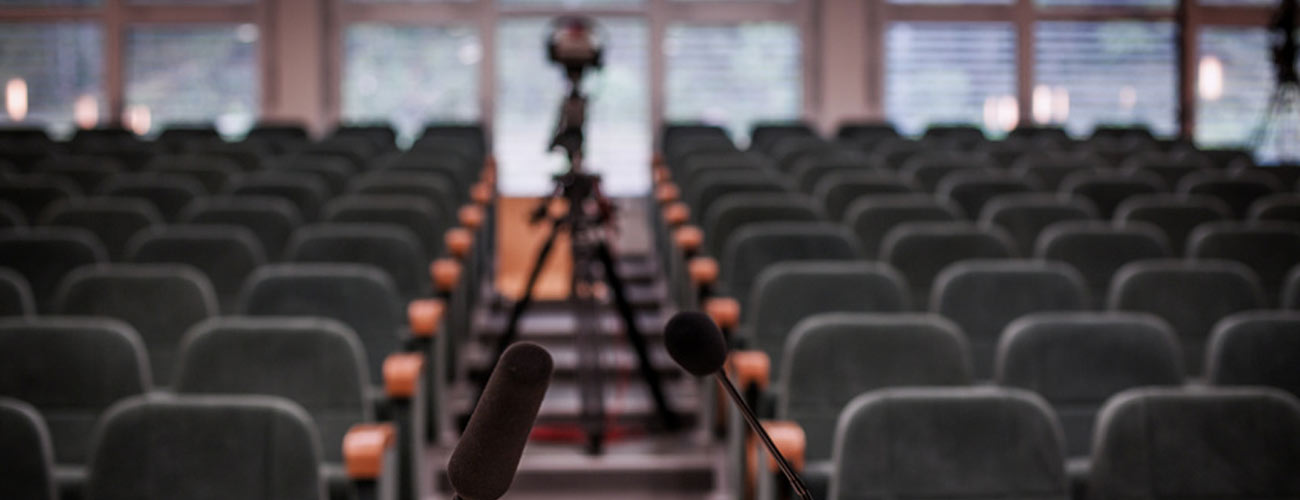Sign up for the daily CJR newsletter.
It’s a weekday afternoon when Dave de Felice, a member of the Dane County, Wisc., board of supervisors, answers his phone. No, he hadn’t yet seen my e-mail seeking clarification on a news release he’d recently sent. But, yes, oh yes, he’d like to talk about it.
A few days earlier, de Felice (pronounced full-LEE-chay) had dashed off a news release to perhaps 20 members of the local press corps about a new “award” he’d launched to highlight dubious public spending. The idea was inspired by the late US Sen. William Proxmire of Wisconsin, who was known for handing out “Golden Fleece Awards.”
De Felice’s award, however, would be named after himself: The Golden Felice.
And in addition to what he saw as questionable expenditures, there was something else de Felice was calling out with this new enterprise: a lack of local media coverage. The last reporters assigned to meetings of the board of supervisors disappeared years ago, he had said in the release—and this is in a county that is home to the state capital, and for a board that signs off on half a billion dollars in public money.
On the phone, I had a question for de Felice: Did his stunt trolling the local press corps lead to any coverage?
“A curious phenomenon,” he replied. “Not one TV station, not one radio station, not one weekly or daily covered this story.”
He did, however, say that at least one person had followed up with him to note that a chain of weekly newspapers covers the county board; reporters for the papers don’t sit in the press seats, so de Felice hadn’t noticed them.
A former radio, TV, and newspaper reporter, who now calls himself “a proud liberal Democrat who hates taxes,” he was more than happy to talk about his observations from a decade as a public official in Dane County.
When he joined the board, “there would be an area for the news media to sit and follow our meetings,” he said. “And, you know, you’d have two to three or more of those seats filled with the dailies, perhaps a radio reporter, and then you’d get the occasional television reporter, but also our meetings had been broadcast live on the local access cable channel. That was 2004. Fast forward to today and those chairs are all empty.”
It concerns him, he said, that he and his colleagues go completely unwatched.
“It used to be that even our committee meetings were covered,” he says. “Well, that’s not happened in a long time. Then the gradual erosion started hitting board meetings. And so one by one they started disappearing.… There needs to be a presence there just to keep us on our best behavior, number one, and number two, to keep the public in touch with what’s going on.”
Just recently, he said, when he had pulled up some local headlines, he saw a story about how a recent spell of pleasant weather wasn’t going to last. The byline belonged to a reporter he recognized as formerly being assigned to the county beat. “It would be one thing if this guy was covering homelessness, or crime, or whatever—I’m sure he covers it all,” de Felice said. But the weather?
Here’s where I should interject to point out that, in our era of newspaper retrenchment, plenty of editors have made the decision to cut back on meetings coverage—it can be a way to preserve resources for enterprise or investigative work, and stories about meetings can be awfully dull, after all. And also to note that editors at the Wisconsin State Journal, the main local daily, declined to discuss de Felice’s assessment, but the paper does offer at least some coverage of the county board—like this early October article about a proposed change in homeless policy, or this one, picked up from The Capital Times about a study of the county jail.
I didn’t put those thoughts to de Felice on the phone; he probably couldn’t dwell on them, anyway. He had his first Golden Felice Award to give—to the county zoo, for spending a hundred grand to light a portion of a public walkway at night when the zoo closes at 5 pm. He dashed off a news release about that, too.
That night, I sent an email, just checking in.
“Still no reporting on it so far?”
His reply:
“No.”
Has America ever needed a media defender more than now? Help us by joining CJR today.







